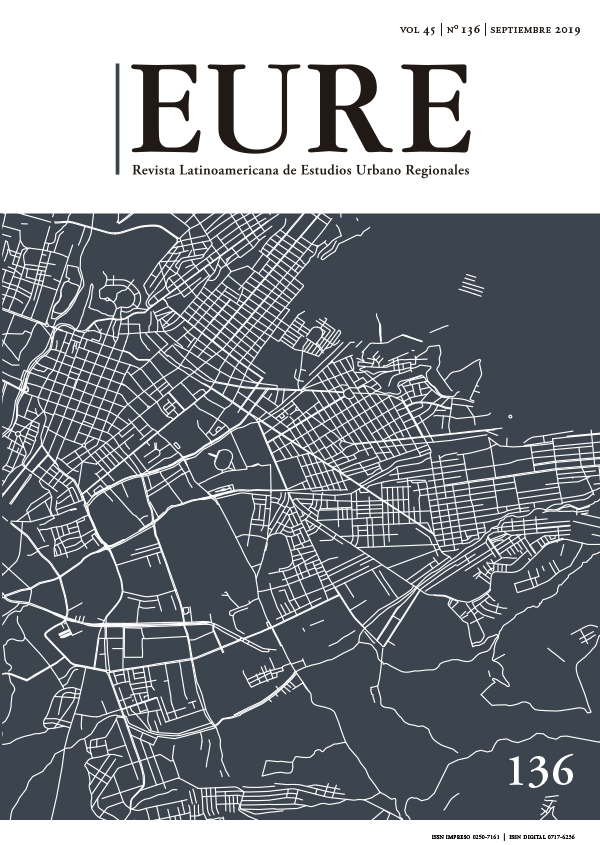The Suburbanization of the North American Sunbelt After the Oil Crisis. The Growth Ideology and the Environmental Debate
DOI:
https://doi.org/10.4067/S0250-71612019000300233Keywords:
environmental quality, urban growth, socio-territorial transformationsAbstract
This article analyzes the development of the suburban model in the Sunbelt cities in the decades after the 1973 oil crisis, especially in the 1980s and 1990s. Paradoxically, in a moment when the economic crisis and the publication of the Meadows Report were expanding the ecologist sensibility all over the world, the Sunbelt continued supporting the suburban model, already discredited as unsustainable. The article studies the reasons of this success, mainly the insertion of office uses in the new suburbs, as well as the resulting environmental crisis at the end of the 1990s. It also analyzes the proposals of the Í€œsmart growthÍ€ movement in order to correct the most unsustainable aspects of the suburban model, and the counter-arguments of its defenders. Finally, the article considers that the wide social consensus that this model has in the Sunbelt has an ideological and economic basis.Downloads
Published
How to Cite
Issue
Section
License
Copyright (c) 2019 Revista EURE - Revista de Estudios Urbano Regionales

This work is licensed under a Creative Commons Attribution 4.0 International License.
Al momento de aceptar la publicación de sus artículos, los autores deberán formalizar la cesión de derechos de autor a EURE, según las condiciones establecidas por la Revista.
Ésta establece que el autor autoriza a EURE de manera gratuita, exclusiva e ilimitada a reproducir, editar, publicar, distribuir, publicitar, comercializar y traducir el artículo, a cualquier soporte conocido o por conocer y desarrollar.
Del mismo modo, los autores aseguran que el artículo propuesto es original, no publicado y no propuesto para tal fin a otro medio de difusión.


